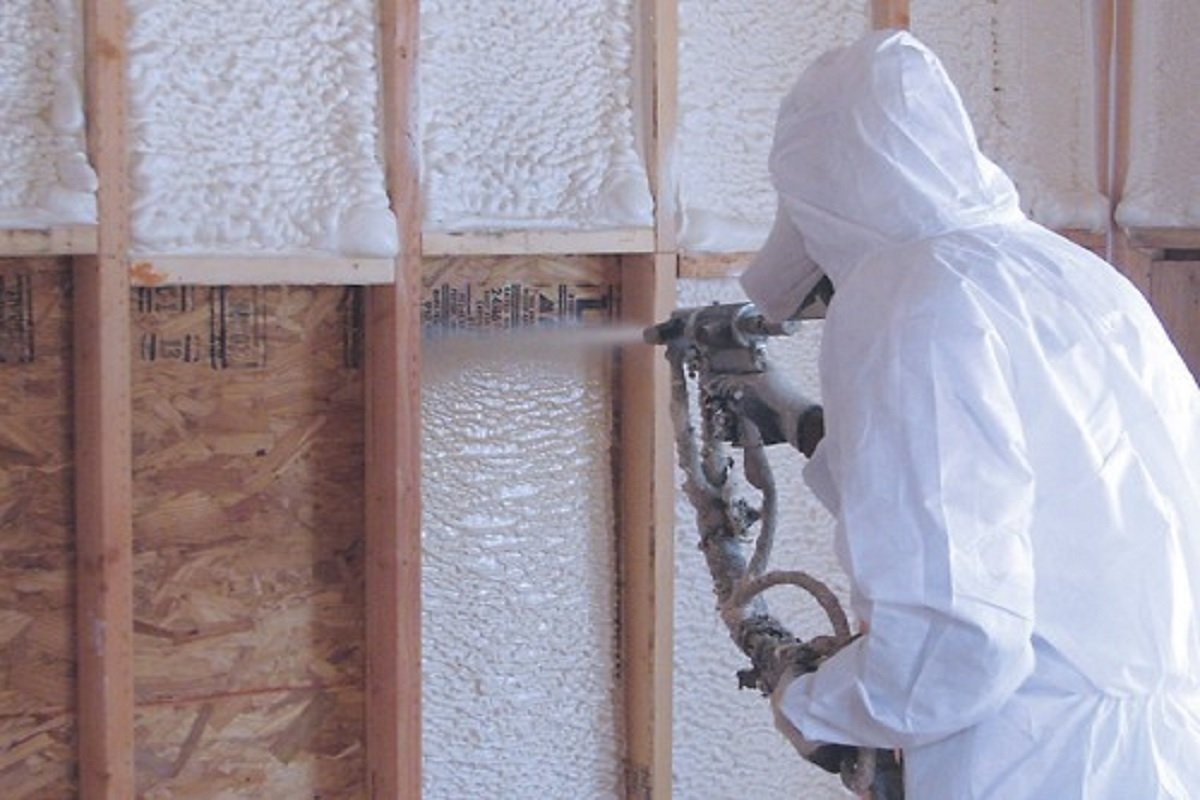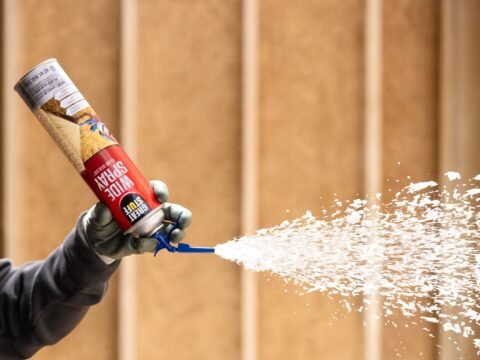
Why Should You Think About Insulating Basement Walls?
July 29, 2022
What Benefits Come with Spray-Foam Insulation?
August 5, 2022Choosing the correct spray foam insulation type to insulate your home can be challenging. However, fortunately for you, 613 Spray Foam is a great choice. It’s a bit more complex than it appears, even though open and closed cell foams are both used to are used to protect homes. However, they accomplish this in various ways. Our experience and expertise can help you choose the most suitable for your needs.
What Makes Open Cell Foam Insulation Different from Closed Cell Foam Insulation?
Closed and open cell foams are distinct insulation made from spray foam. Each has strengths and weak points; one isn’t necessarily superior to the other. It’s about understanding the advantages of open vs. closed cell foam and choosing the one that best suits your requirements.
Let’s look at the differences between open cells and closed cell foams.
The Cells
Spray insulation is often called an open or closed cell due to the distinction between the tiny bubbles (cells) which make up the foam.
The open cell foam gets made up of cells that aren’t fully enclosed. That is, the cells are left uninhabited. It creates a soft and more flexible. The tiny cells that do not have a complete seal have air, which impacts how the foam feels and behaves. With our tools and knowledge, we can make you happy and ensure that you won’t regret choosing us.
The closed cell foam comprises cells that are, as the name implies, totally secure. Closed cell foam includes cells that get sealed off to ensure that air cannot enter the structure. The cells get compressed; thus, moisture and air cannot penetrate the foam. Due to this, close cell foam can be more stable and rigid compared to open cells.
R-Value
A foam’s R-value is the capacity to slow heat circulation. That is how well they can insulate.
The closed cell foam gets characterized by a better R-value than open foam, typically approximately 6.0 for every inch. It ensures that the closed cell is superior at keeping heat inside or out of the structure. However, certain closed cell foams have more excellent ratings that reach as high as 7 per inch.
Foams with open cells have an R-value of approximately 3.5 for every inch. It is considerably fewer than closed cell foams, which could restrict the use of open cell insulation in extreme temperatures.
Expansion
It is among the most significant aspects from a practical standpoint. Closing cell foam gets made to expand to 1 inch in thickness when spraying. The open cell foam gets made to expand up to 3 inches of thickness. With each inch having an R-value of 7, different applications can use to obtain higher R-values. It means only one option is available on the majority of standard walls.
Uses
There are many foam applications, with different types of cell structures being better. Because a closed cell cannot hold water and make a cushion heavier and more challenging to dry, it gets commonly used for outdoor cushions. Closed cells can also get used for various reasons to be stronger, like shipping and packaging requirements, security barriers, and much more. The foam type could be used in construction as insulation for buildings since it acts as a barrier to keep the heat and cool air within a structure to cut down on the cost of utilities. It can also be utilized in various automotive and electrical applications, provided it is not heat-resistant.
The open cell type of foam is soft and more elastic; this is an excellent choice for comfort and supports various uses. With the comfort and support it provides, it’s evident why open cell foam gets found in all sorts of chairs, sofas, mattresses, and loveseats. It gets used for pillows, support aids, pet beds, and numerous other applications. It is available in various levels of density and firmness. Open cell foam may be extraordinarily soft or more firm to provide more significant support.
Factor of Durability
Although closed cell foam is typically more durable and lasts longer than open cell foams, the two have long-lasting longevity. A closed cell is more robust because it offers greater rigidity. It also has a higher resistance to damage in rips and tears, whereas it is less prone to wear on the surface. Our experts know the suitable for your home. You will be confident about your structure’s durability when you install the product.
Methods for Application
Open-cell foams usually require vapor barriers following the manner of fiberglass as well as extra batt-type insulations. Closed-cell foams sprayed up to a specific depth make their borders vapor. In general, closed-cell insulations need an open-stud area to get used. Therefore, they are not suitable for retrofitting unless walls get removed first. Certain slow-expanding open-cell foams can get used to fill the wall of walls with cavities.
The components typically get moved through heaters before mixing and being dispensed under high pressure to partially fill the gaps between joists, studs, and rafters.
Many people believe that the thickness variation affects the foam’s structure. However, both open and closed cell foam is available in various thicknesses. The amount of consistency required will depend on the use. However, both kinds of suds can use in multiple thicknesses. However, open cell foam may be a less elastic material when it gets used in a way that is too thick. Closed cells may be less durable in more minor cuts than larger ones.
In deciding between the two, the kinds of applications, and the results you want to achieve, will be the most critical factor determining the best choice. Both choices provide the long-lasting endurance and performance you can expect from this versatile material.
613 Spray Foam will provide top-quality service and expert advice, and you’ll be satisfied with every cent you spend. Contact us at (613) 319-8422 or email at info@613sprayfoam.ca if you need assistance deciding which spray foam is best for your property. We’ll work with you to find the best option.




